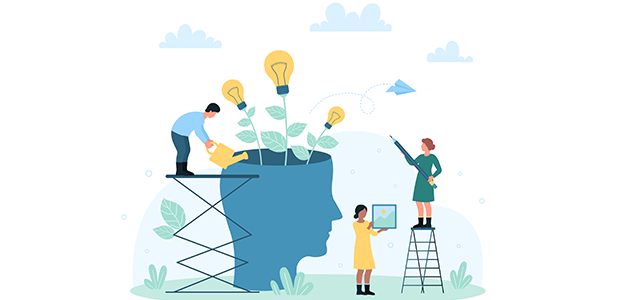
Why investing in personal development leads to business success
The relationship between personal development and professional success is more important than ever in business today. As Jim Rohn, the esteemed entrepreneur and motivational speaker, wisely noted, "Your level of success will rarely exceed your level of personal development.”
As a business mentor and former corporate CEO, I’ve seen first-hand many instances where a commitment to personal development has advanced not only individual careers but has also transformed entire organisations.
It’s crucial to recognise that, by prioritising personal growth, you can unlock new levels of performance, inspire your team, and drive your organisation towards success in the long term.
Here’s why investing in personal development is so pivotal to business success and how it can elevate both individual and team performance.
Enhanced leadership skills
One of the biggest benefits of investing in personal development is that it enhances leadership skills.
Effective leadership is the backbone of any successful organisation, and leaders who commit to their own growth often find themselves better equipped to guide their teams with real clarity and confidence.
Leadership development programmes, for instance, focus on key areas like improving communication, strategic thinking, and decision-making abilities. By honing these skills, leaders can not only improve their own performance but also inspire their teams to strive for excellence.
Self-awareness and emotional intelligence
Self-awareness and emotional intelligence are fundamental aspects of personal development and play a crucial role in business success.
Self-aware leaders have a clear understanding of their strengths and weaknesses, enabling them to delegate tasks more effectively and build stronger, more cohesive teams.
Emotional intelligence, on the other hand, allows leaders to manage their emotions, empathise with others, and navigate complex social dynamics. Leaders with high emotional intelligence are better equipped to handle stress, resolve conflicts, and maintain healthy workplace relationships.
These capabilities are essential for building a harmonious and productive work environment, where employees feel supported and valued.
Resilience
Personal development also builds resilience – an indispensable trait in the business world.
Through activities like mindfulness, stress management, and continuous learning, individuals develop the ability to cope with setbacks and adapt to changing circumstances.
Resilient leaders maintain their composure during crises, make informed decisions under pressure, and motivate their teams to persevere through challenges. This resilience is a key factor in sustaining business operations and achieving long-term goals. It enables organisations to navigate through difficult times and emerge stronger, ready to tackle new opportunities.
Empowerment and autonomy
Investing in personal development empowers employees by boosting their confidence and competence. When they feel empowered, team members are more likely to take ownership of their roles and show initiative. This empowerment often leads to increased autonomy, which in turn enhances job satisfaction and reduces turnover rates.
Businesses that embrace personal development create a culture where employees feel valued and motivated to contribute their best efforts. Empowered employees are more likely to innovate, solve problems creatively, and help propel the organisation forward.
Increased productivity and efficiency
Personal development also directly influences productivity and efficiency. Training programmes that focus on essential skills such as time management, goal setting, and organisational abilities enable employees to work smarter, not harder.
As individuals become more adept at managing their tasks and responsibilities, they achieve more in less time. This increased efficiency results in higher performance levels, both at an individual and organisational level.
As a result, businesses that prioritise personal development often witness significant improvements in output quality and overall work performance.
The ripple effect on organisational culture
Beyond the individual benefits, investing in personal development has a huge impact on overall organisational culture.
When personal growth is supported, it creates an environment where continuous learning and improvement are valued. This culture of growth encourages collaboration, innovation, and a shared commitment to excellence.
Employees are more likely to engage in proactive problem-solving and contribute to a positive workplace atmosphere. Additionally, a strong focus on personal development can enhance the organisation’s reputation, attracting top talent who are eager to work in a supportive and growth-oriented environment.
Long-term sustainability and growth
Finally, personal development is fundamental to long-term sustainability and growth. To thrive in the current environment, businesses need to be ready to adapt to new challenges and opportunities.
By investing in the continuous development of their people, businesses can ensure their teams are equipped with the skills and mindset needed to survive in an evolving market. This commitment to growth helps organisations stay competitive, innovate, and achieve their long-term objectives.
Final Thoughts
Investing in personal development is essential for achieving business goals. After all, the journey of accomplishing success is a shared one, and it starts with nurturing and empowering the individuals who drive a business forward.
By fostering an environment that supports and celebrates personal development, business owners can set the stage for a thriving, resilient, and successful organisation.

